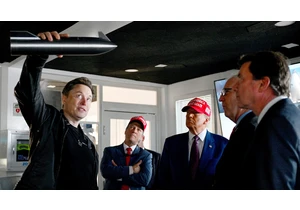Washington’s main antitrust regulators–the Federal Trade Commission (FTC) and the Department of Justice (DOJ)–made a joint announcement on Tuesday that they intend to look at big tech mergers through a different lens in the future. The two agencies held a joint news conference Monday morning to announce the beginning of a joint process to write new guidelines for considering horizontal mergers, or those between companies that may compete in the same marketplace. (The agencies use a different set of guidelines to consider vertical mergers of companies within the same supply chain). Such guidelines might have been used, for example, by the FTC to decide to file its current lawsuit against Facebook/Meta, which seeks to unwind the social networking giant’s past acquisitions of Whatsapp and Instagram. “This inquiry launched by the FTC and DOJ is designed to ensure that our merger guidelines accurately reflect modern market realities and equip us to forcefully enforce the law against unlawful deals,” said FTC chair Lina Khan. Khan, who was appointed FTC chair by President Biden last year, has been a thought leader and a champion for more aggressive regulation of Big Tech. She’s championed a more holistic way of measuring the real costs and effects of tech mergers, including effects on competition, labor, and supply chains. Without giving details, Khan’s FTC has suggested that the new guidelines may contain tools for evaluating acquisitions by tech companies–specifically ones like Meta, Google, and Amazon, which don’t directly charge consumers for services, but rather make money using the personal data they aggregate on their platforms. Khan’s chief economist John Kwoka said Monday that several of the issues associated with digital markets like data aggregation were not “fully addressed” in the agency’s current horizontal-merger guidelines, which were issued in 2010. “In the last guidelines that were issued a decade ago, there was no special focus on tech,” says Joel Mitnick, a partner in law firm Cadwalader’s Antitrust and Global Litigation groups. But tech is a much bigger part of the economy now, and tech company mergers are bigger and more consequential. On services such as Google’s Gmail and Meta’s Facebook, the real cost is personal data.Mitnick points out that the guidelines are meant to reflect the experience of regulators dealing with specific industries. And the FTC and DOJ have gained considerable experience with the tech industry over the past five years, he says. “Some of the learnings in tech deals have resulted in a specialized analysis with respect to network effects, products given away for free, and the acquisition of enormous amounts of data.” Mitnick says the FTC is currently trying to determine the role that consumer privacy will play in its merger guidelines. On services, such as Google’s Gmail and Meta’s Facebook, the real cost is personal data. In effect, users pay with their privacy. And regulators don’t yet have a consensus on how to factor privacy costs into the analysis of a merger. Ultimately, the guidelines will settle that debate. The FTC and DOJ stress that they want to talk to a range of consumers and industry stakeholders before finalizing the guidelines. Sympathetic ears When the FTC or DOJ decides to block a merger, they must file suit and prove their case in court. In recent history, this hasn’t been easy. Since the 1970s, U.S. courts have been hesitant to interfere with mergers that don’t cause obvious price increases for consumers. But the new guidelines might change the way the courts look at tech mergers, too, Mitnick tells me. “These guidelines are changed at most once a decade, and they purport to contain another decade worth of economic learning,” Mitnick says. “They have proved to be highly influential on the courts in the past.” So FTC and DOJ attorneys might be more confident in filing suit to block mergers if they sense a more sympathetic ear in court. Just the perception of this change may chill the air around future tech mergers. As risk of a government intervention increases, so does the risk that the suitor company might lose all the time and money it’s already invested in the courtship, including due diligence, discovery, legal fees, and potential breakup fee. The companies might decide the risk of failure outweighs the benefits of success. The FTC and DOJ’s press conference happened within hours of Microsoft announcing its intent to acquire the gaming company Activision Blizzard for almost $69 billion.
Jelentkezéshez jelentkezzen be
EGYÉB POSTS Ebben a csoportban

Welcome to AI Decoded, Fast Company’s weekly newsletter that breaks down the most important news in the world of AI. You can sign up to receive this newsletter ever


Elon Musk’s SpaceX and two partners have emerged as frontrunners to win a crucial part of President Donald Trump’s “Golde

A new watchdog report uncovers Facebook groups quietly fueling a black market fo

A software application called Interview Coder promises to help software developers succeed at technical job interviews—by surreptitiously feeding them

Amid tariff whiplash and the rejuggling of global trade, GE Vernova’s CEO Scott Strazik is finding a way to stay “relentlessly optimistic.” Strazik returns to the Rapid Response podcast to share h

Tesla‘s electric-vehicle registrations in California dropped 15.1% during the first quarter, industry data showed, signaling an
